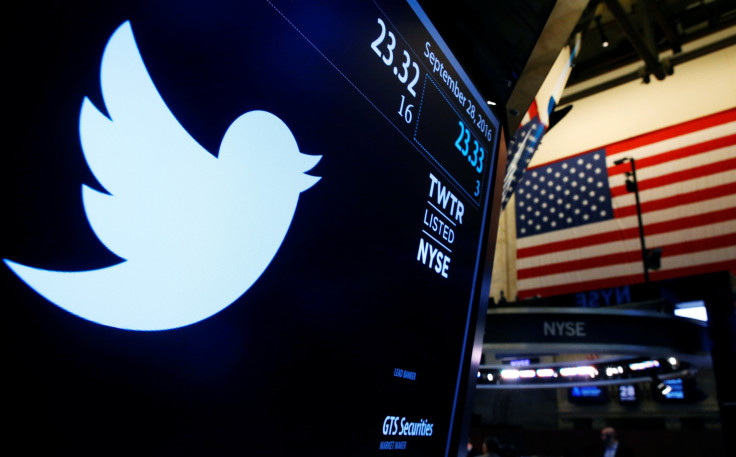Dictionary Meanings Of Refugee, Anathema And Svengali Skyrocket Amid Trump’s Executive Order, Merriam-Webster Says

It’s no accident that the Merriam-Webster — yes, the dictionary — has tweeted over the past few days about the meaning of the words refugee, anathema and svengali.
Refugee, which comes from the French word réfugié, describes people who are forced to flee their land for safety. Anathema means “someone or something intensely disliked or loathed,” and a svengali is a “a person who manipulates or exerts excessive control over another.”
What do these words have in common? The news. President Donald Trump signed an executive order temporarily banning refugees from the U.S.; Jewish religious organizations called Trump’s actions “anathema”; and the New York Times editorial board described Trump’s right-hand man Steve Bannon as a svengali.
The dictionary follows language: word trends, spikes in searches and recent events. But sometimes it sprinkles in sass, too.
This is what the account tweeted after Trump misspelled "unprecedented" in his own tweet:
Good morning! The #WordOfTheDay is...not 'unpresidented'. We don't enter that word. That's a new one. https://t.co/BJ45AtMNu4
— Merriam-Webster (@MerriamWebster) December 17, 2016
Here’s Merriam-Webster’s response to White House counselor Kellyanne Conway’s use of the phrase “alternative facts”:
*whispers into the void* In contemporary use, fact is understood to refer to something with actual existence. https://t.co/gCKRZZm23c
— Merriam-Webster (@MerriamWebster) January 24, 2017
And here's what happened after Trump said "bad hombre" during a presidential debate in October:
hombre:🚶 a man
— Merriam-Webster (@MerriamWebster) October 20, 2016
ombré: 🌈 having colors or tones that shade into each other #debatenight
It’s fun to imagine that a dictionary, an old book probably currently collecting dust on your family’s shelf, has a cheeky personality and penchant for sharing wisdom. But in actuality, there’s a person behind the Twitter account — that person is Lauren Naturale, content and social media manager at Merriam-Webster.
Naturale runs the dictionary’s social media accounts and manages content on the website. She lives in Brooklyn, “in a very old apartment with too many books,” Naturale wrote in an email, and her love of wordplay comes from “compulsive reading, too much internet and show tunes.”
Although many people might not associate reading a dictionary with having a good time, Naturale maintains a Twitter presence that’s both playful and informative — and that’s intentional.
“The truth is, the dictionary is a bunch of sassy folks who are the inspiration for this voice,” said Lisa Schneider, chief digital officer and publisher. “Smart, snappy conversations and comebacks are happening in our office every day, and we are sharing that with the world. Our Twitter presence works because it’s not a construct, it’s who we really are.”
People online have taken notice. They praised the dictionary for its sass and applauded the dictionary for taking jabs at the Trump administration.
But Merriam-Webster is not in the business of making political statements, said Peter Sokolowski, editor at large. The focus is on the words, he said, and words trend for different reasons, whether it’s because of politics, a sporting event or a new movie.
“We don’t comment on policy or politics, but when a public figure uses language in a remarkable way that makes the news, it’s fair game for us to report on the dictionary traffic and talk about the word itself without being considered political,” he said.
He used the example of people searching for the spelling of ombre and hombre during the presidential debate.
“Ombre and hombre and even umber were all looked up during that debate, which told us that people weren’t sure how to spell the word,” Sokolowski said. “That’s what the dictionary is for.”
And language trends aren’t always predictable. Revenant — which means “one that returns after death or a long absence” — was a trending term for months last year after the Leonardo DiCaprio film “The Revenant” was released. Omnia paratus, a Latin phrase that means “prepared for all things,” trended after the "Gilmore Girls" revival was released. But the phrase “gap year” didn’t get much attention at all last year, despite the widespread news coverage of the term after Malia Obama announced that she’d take a gap year after high school.
“Following the trends is a fascinating prism through which to see what’s on peoples’ minds,” Sokolowski said.
As for Naturale, who’s in charge of the dictionary’s Twitter account? Her favorite word is “ambisinister.”
It “sounds ominous but just means ‘left-handed, or clumsy in the use of both hands,’ according to Webster’s Second,” Naturale said. “I’m both.”
© Copyright IBTimes 2025. All rights reserved.






















